• Indigestion

Indigestion — also called dyspepsia or an upset stomach — is discomfort in your upper abdomen. Indigestion describes certain symptoms, such as abdominal pain and a feeling of fullness soon after you start eating, rather than a specific disease. Indigestion can also be a symptom of various digestive diseases
When you have indigestion, you may have one or more of the following symptoms: pain, a burning feeling, or discomfort in your upper abdomen.
• Anorexia/Loss of Appetite

A decreased appetite occurs when you have a reduced desire to eat. It may also be known as a poor appetite or loss of appetite. The medical term for this is anorexia. A wide variety of conditions can cause your appetite to decrease.
Appetite loss can have causes that aren't due to underlying disease. Examples include ageing, nervousness, grief, disgusting sights and smells or smoking cigarettes.
• Acid Reflux (GERD)

This is a chronic disease that occurs when stomach acid or bile flows into the food pipe and irritates the lining. Acid reflux and heartburn more than twice a week may indicate GERD. Symptoms include burning pain in the chest that usually occurs after eating and worsens when lying down.
Relief from lifestyle changes and over-the-counter medication is usually temporary. Stronger medication may be required.
• Reflux Esophagitis
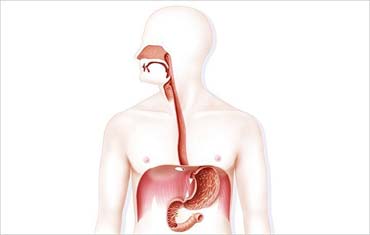
Reflux esophagitis is an esophageal mucosal injury that occurs secondary to retrograde flux of gastric contents into the esophagus. Clinically, this is referred to as gastroesophageal reflux disease (GERD). Typically, the reflux disease involves the distal 8-10 cm of the esophagus and the gastroesophageal junction.
Healthy people often recover within three to five days, even without treatment. Recovery may take longer if you have a weakened immune system.
• Gastritis
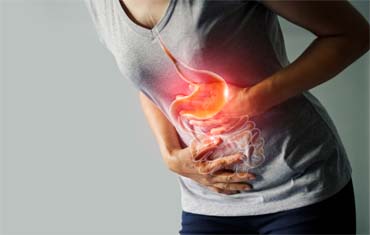
Gastritis is a general term for a group of conditions with one thing in common: inflammation of the lining of the stomach. The inflammation of gastritis is most often the result of infection with the same bacterium that causes most stomach ulcers.
cute gastritis lasts for about 2-10 days. If chronic gastritis is not treated, it may last from weeks to years.
• Nausea

Nausea is stomach discomfort and the sensation of wanting to vomit. Nausea can be a precursor to vomiting the contents of the stomach. The condition has many causes and can often be prevented.
Nausea can have causes that aren't due to underlying disease. Examples include motion such as from a car and plane, taking pills on an empty stomach, eating too much or too little or drinking too much alcohol.
• Vomiting

Vomiting, or throwing up, is a forceful discharge of stomach contents. It can be a one-time event linked to something that doesn't settle right in the stomach. Recurrent vomiting may be caused by underlying medical conditions.
Vomiting can have causes that aren't due to underlying disease. Examples include hangover, pregnancy, overeating or motion sickness.
• Hematemesis
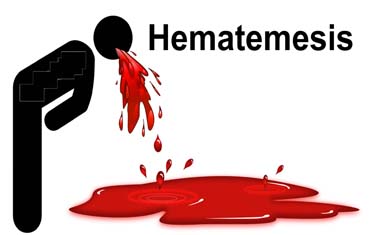
Vomiting blood, also called hematemesis, is a serious condition in which blood is expelled from the mouth. The blood can be bright red, black or dark brown. Conditions that cause a person to vomit blood can also cause blood to show up in the stool. Possible Causes. Care and Treatment.
The most common underlying cause for oesophageal varices is portal hypertension resulting from alcoholic liver disease.
• Hyperacidity
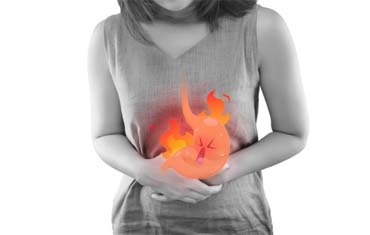
Hyperacidity refers to a set of symptoms caused by an imbalance between the acid secreting mechanism of the stomach and proximal intestine and the protective mechanisms that ensure their safety. The stomach normally secretes acid that is essential in the digestive process.
Smoking, alcohol consumption, and high levels of stress/anxiety may trigger hyperacidity.
• Gastric Ulcer/Peptic Ulcer
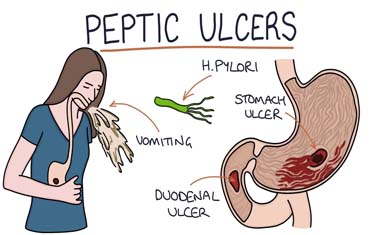
Ulcers occur when stomach acid damages the lining of the digestive tract. Common causes include the bacteria H. Pylori and anti-inflammatory pain relievers including aspirin. Upper abdominal pain is a common symptom.
Treatment usually includes medication to decrease stomach acid production. If it is caused by bacteria, antibiotics may be required.
• Flatulence

Excessive flatulence can be caused by swallowing more air than usual or eating food that's difficult to digest. It can also be related to an underlying health problem affecting the digestive system, such as recurring indigestion or irritable bowel syndrome (IBS).14
Bananas may cause gas and bloating in some people due to their sorbitol and soluble fiber contents.
• Appendicitis

The appendix is a pouch-like structure attached at the start of the large intestine that has no known purpose. Appendicitis begins with fever and pain near the belly button and then moves toward the lower-right side of the abdomen. This is often accompanied by nausea, vomiting, loss of appetite, fever and chills.
Appendicitis is usually treated with antibiotics and surgery is required within 24 hours of its diagnosis.
• Ulcerative Colitis

Ulcerative colitis (UL-sur-uh-tiv koe-LIE-tis) is an inflammatory bowel disease (IBD) that causes inflammation and ulcers (sores) in your digestive tract. Ulcerative colitis affects the innermost lining of your large intestine (colon) and rectum. Symptoms usually develop over time, rather than suddenly.
Ulcerative colitis is usually only in the innermost lining of the large intestine (colon) and rectum. Forms range from mild to severe.
• Irritable Bowel Syndrome (IBS)

Irritable bowel syndrome (IBS) is a common disorder that affects the large intestine. Signs and symptoms include cramping, abdominal pain, bloating, gas, and diarrhea or constipation, or both. IBS is a chronic condition that you'll need to manage long term.
The cause of irritable bowel syndrome isn't well understood. A diagnosis is often made based on symptoms.
• Crohn's Disease

Crohn's disease is a type of inflammatory bowel disease (IBD). It causes inflammation of your digestive tract, which can lead to abdominal pain, severe diarrhea, fatigue, weight loss and malnutrition. Inflammation caused by Crohn's disease can involve different areas of the digestive tract in different people.
Crohn's disease can sometimes cause life-threatening complications.
• Chronic Diarrhoea/ Atisara
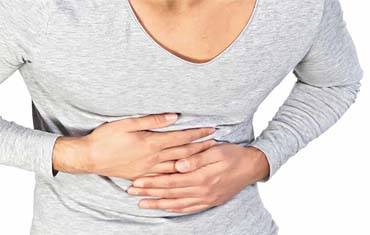
Taking 7 ½ g ground thumpa flower mixed in 60 ml tender coconut water is ideal.
Take 15 grams of the tender root of peral mixed in old rice gruel water. This will halt all kinds of diarrhoea.
Take juice of the skin of ambazham and coconut milk in equal measures to dispel diarrhoea.
• Inflammatory Bowel Disease
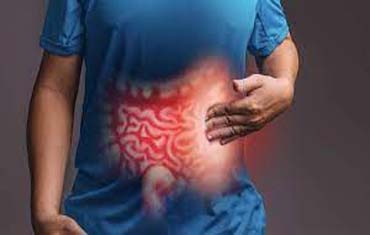
Inflammatory bowel disease (IBD) is an umbrella term used to describe disorders that involve chronic inflammation of your digestive tract. Types of IBD include: Ulcerative colitis. This condition involves inflammation and sores (ulcers) along the superficial lining of your large intestine (colon) and rectum.
No, IBD cannot be cured. There will be periods of remission when the disease is not active.
• Constipation

Constipation is a condition in which you may have fewer than three bowel movements a week; stools that are hard, dry, or lumpy; stools that are difficult or painful to pass; or a feeling that not all stool has passed. You usually can take steps to prevent or relieve constipation.
When a person passes less than three bowel movements a week or has difficult bowel movements.
• Carcinoma of GI Tract
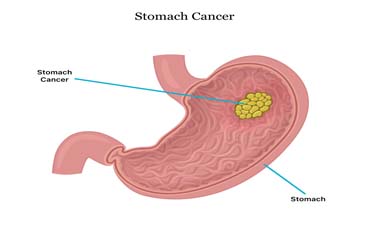
GI tract cancer is a collective term used to describe cancers that affect the digestive system. Worldwide, the most commonly diagnosed GI cancers include: colorectal cancer (CRC), gastric cancer, liver cancers (e.g. hepatocellular carcinoma [HCC]), esophageal cancer and pancreatic cancer.
Risk factors may include smoking and a diet of highly processed or salty foods.
• Ascites
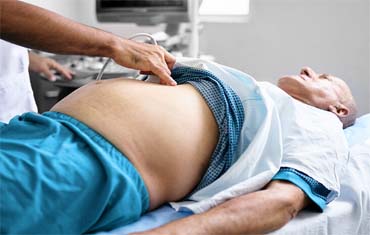
Ascites (ay-SITE-eez) is when too much fluid builds up in your abdomen (belly). This condition often happens in people who have cirrhosis (scarring) of the liver. A sheet of tissue called the peritoneum covers the abdominal organs, including the stomach, bowels, liver and kidneys. The peritoneum has two layers.
The most common cause of ascites is cirrhosis of the liver.
Anorectal Disease
• Haemorrhoids
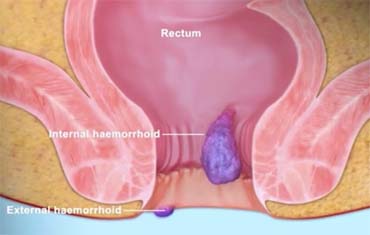
Haemorrhoids, also known as piles, are swellings containing enlarged blood vessels that are found inside or around the bottom (the rectum and anus). In many cases, haemorrhoids don't cause symptoms, and some people don't even realise they have them.
Swollen and inflamed veins in the rectum and anus that cause discomfort and bleeding.
• Fissure
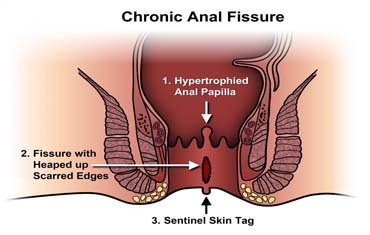
Overview. An anal fissure is a small tear in the thin, moist tissue (mucosa) that lines the anus. An anal fissure may occur when you pass hard or large stools during a bowel movement. Anal fissures typically cause pain and bleeding with bowel movements.
Anal fissure may occur when passing hard or large stools.
• Fistula
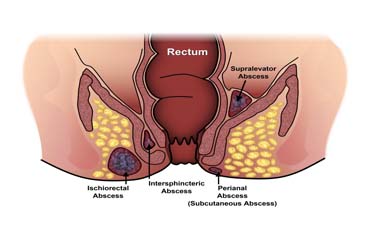
A fistula is an abnormal connection between two body parts, such as an organ or blood vessel and another structure. Fistulas are usually the result of an injury or surgery. Infection or inflammation can also cause a fistula to form.
Fistulas form when inflammation causes sores, or ulcers, to form on the inside wall of the intestine or nearby organs.
